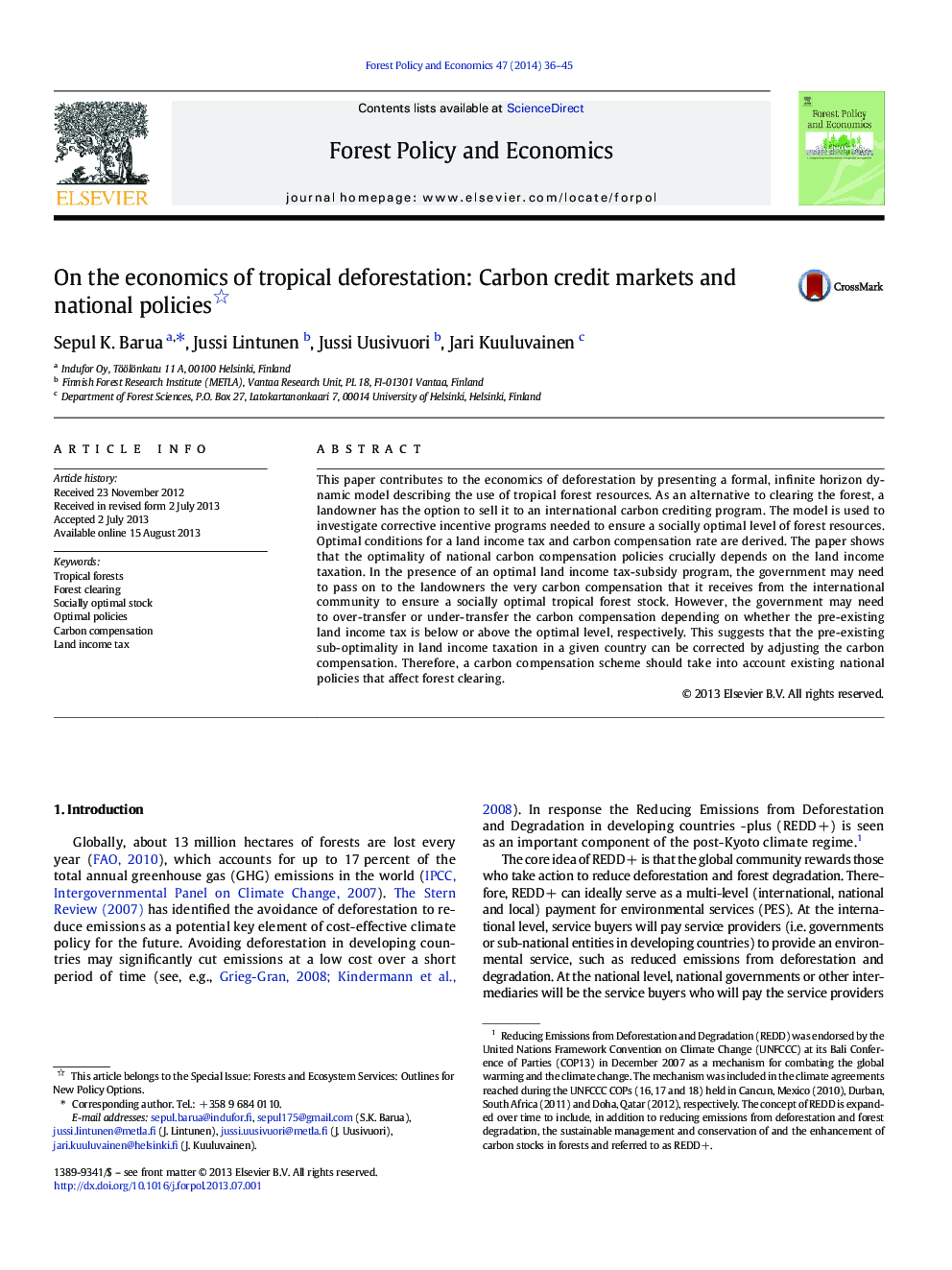| Article ID | Journal | Published Year | Pages | File Type |
|---|---|---|---|---|
| 91222 | Forest Policy and Economics | 2014 | 10 Pages |
•Economics of tropical deforestation under carbon crediting option is studied.•An infinite time dynamic optimization model is used.•Carbon crediting option would raise the value of standing tropical forests.•Existence and optimality of land income tax influence national-level carbon policy.•National governments should be allowed to set carbon compensation rate freely.
This paper contributes to the economics of deforestation by presenting a formal, infinite horizon dynamic model describing the use of tropical forest resources. As an alternative to clearing the forest, a landowner has the option to sell it to an international carbon crediting program. The model is used to investigate corrective incentive programs needed to ensure a socially optimal level of forest resources. Optimal conditions for a land income tax and carbon compensation rate are derived. The paper shows that the optimality of national carbon compensation policies crucially depends on the land income taxation. In the presence of an optimal land income tax-subsidy program, the government may need to pass on to the landowners the very carbon compensation that it receives from the international community to ensure a socially optimal tropical forest stock. However, the government may need to over-transfer or under-transfer the carbon compensation depending on whether the pre-existing land income tax is below or above the optimal level, respectively. This suggests that the pre-existing sub-optimality in land income taxation in a given country can be corrected by adjusting the carbon compensation. Therefore, a carbon compensation scheme should take into account existing national policies that affect forest clearing.
